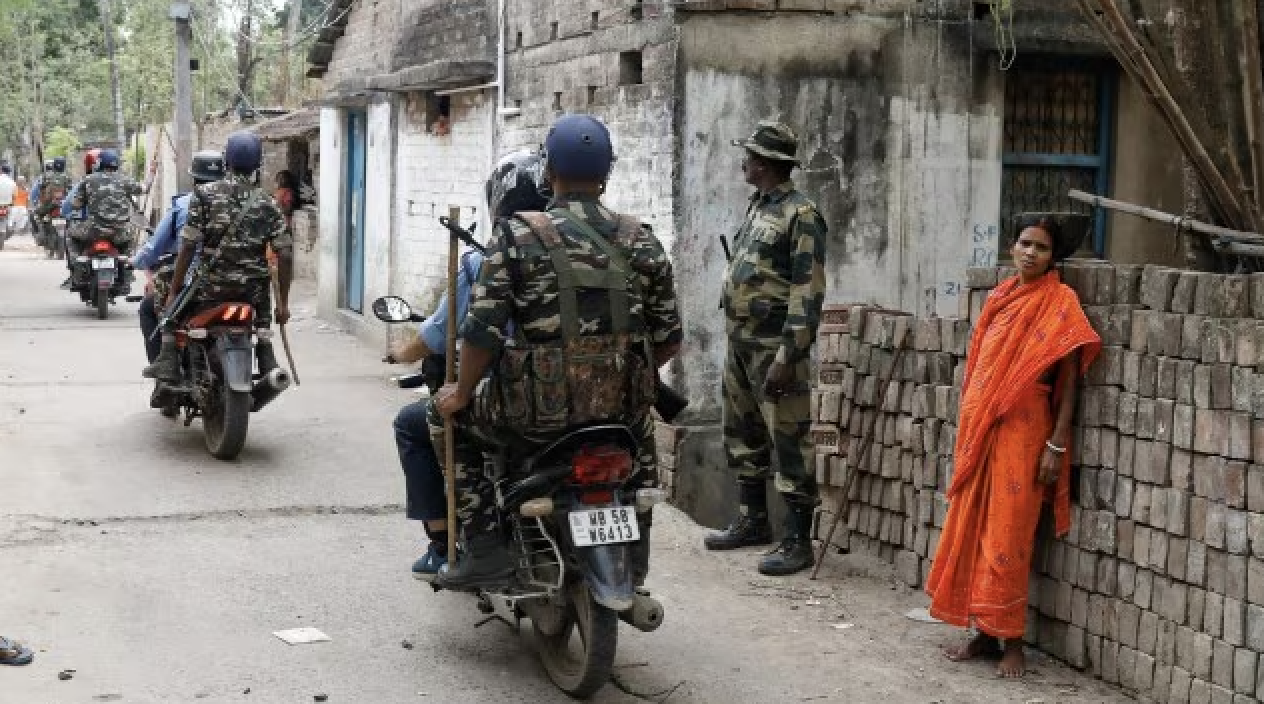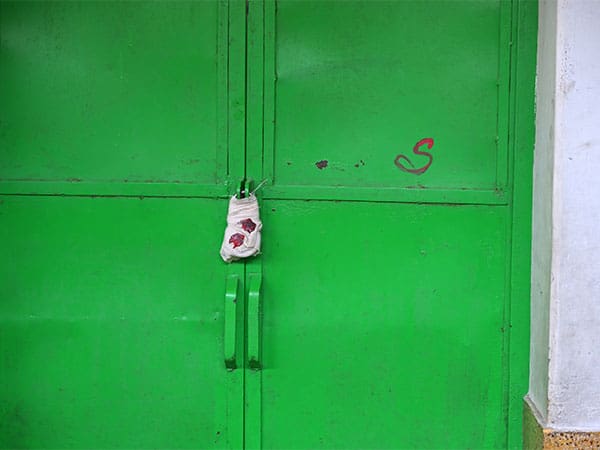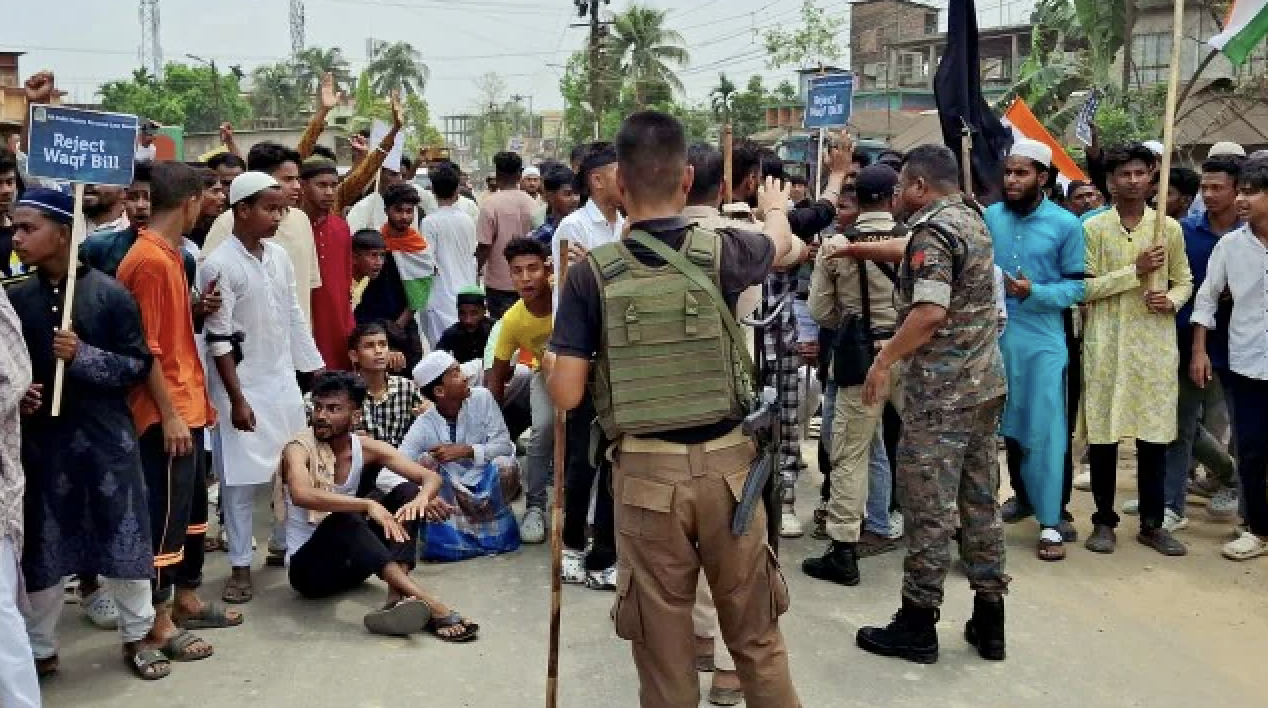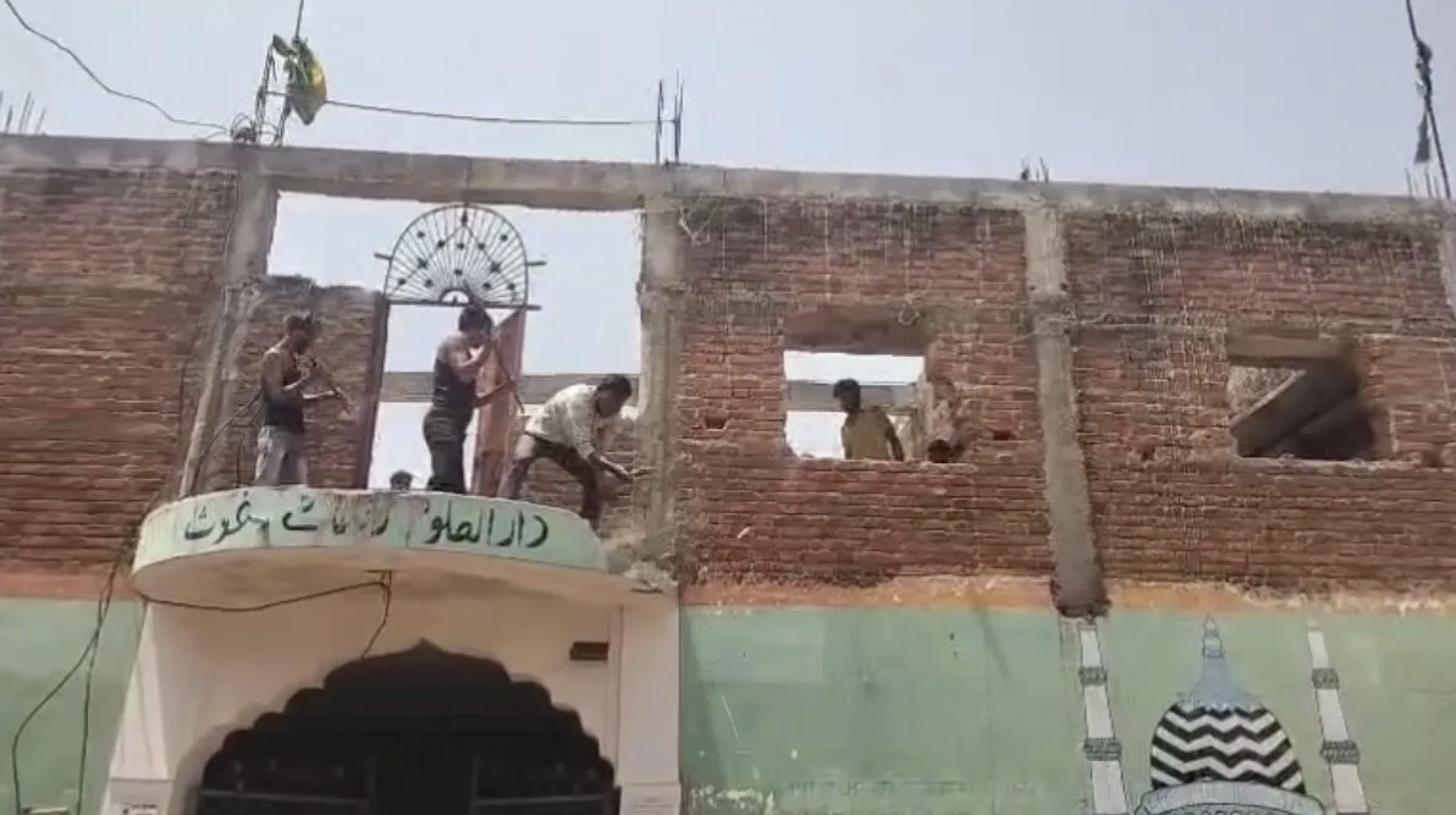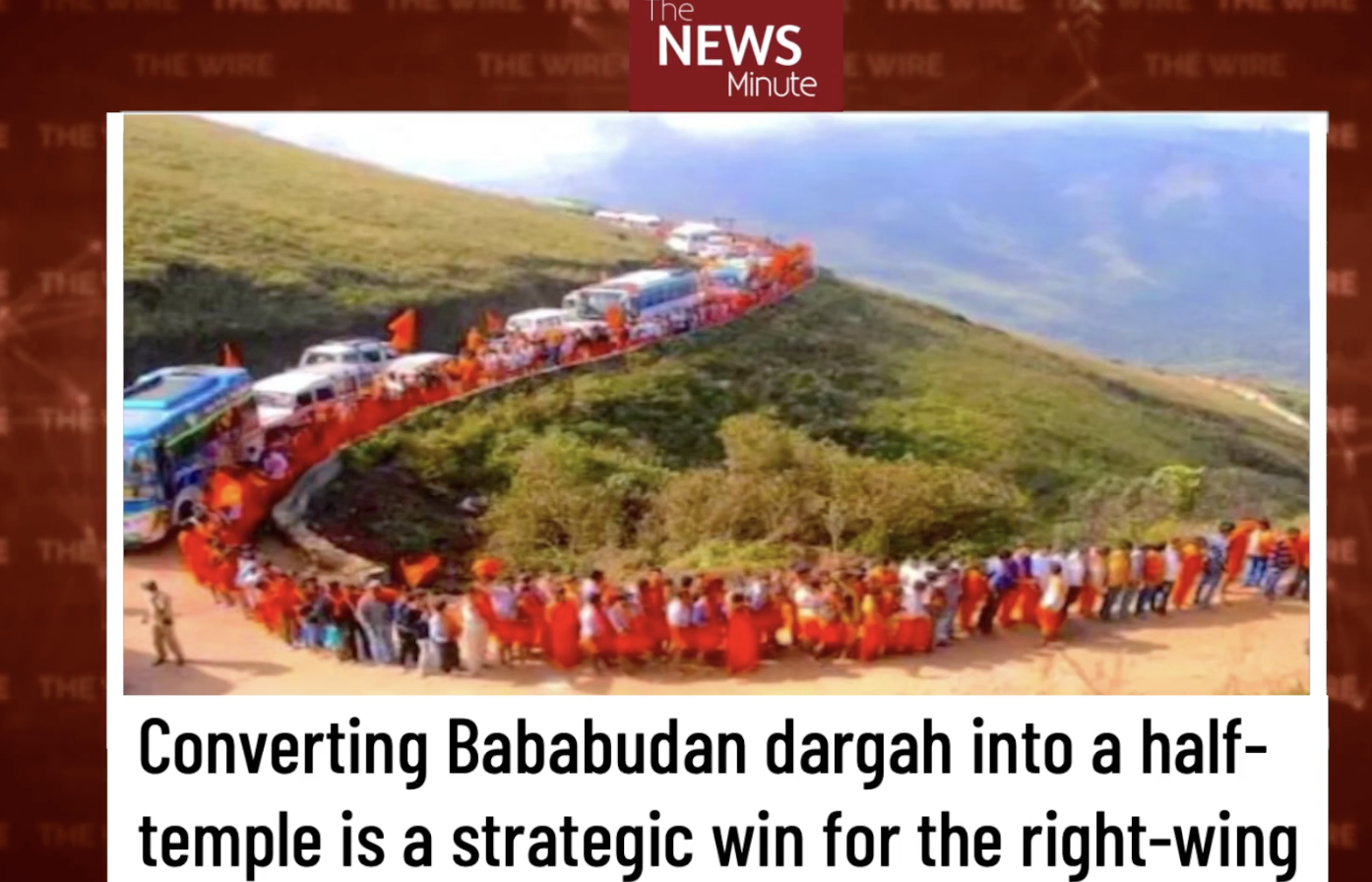
By Shivasundar
In what may embolden the Sangh parivar’s claim over Bababudan Dargah in Karnataka, the Siddaramaiah-led Congress government in Karnataka has submitted an affidavit in the Supreme Court that upholds the former Bharatiya Janata Party state government’s order on the matter. The writ petition submitted by the Siddaramaiah government on March 26 repeats nearly all the directives regarding the religious nature and administrative practices in Bababudan Dargah, a famous syncretic shrine in the state revered by both Hindus and Muslims.
A brief history of the dispute may be handy to better understand the issue.
The Bababudan Dargah in Chikkamagaluru has been the Ayodhya of Karnataka for the Sangh parivar since the early nineties. The Dargah was the abode of Dada Hayat Mir Quaalandar of the Qualandriya Sufi tradition in the 11th century and then went on to be home for Bababudan, a Sufi saint believed to have introduced coffee plantation in the state and the country in late 16th century.
In the wake of the Ram Janmabhoomi movement all over the country in early 90s, the Sangh Parivar of the region also, for the first time, started to claim the shrine. It said that it belonged to the Hindu deity Dattatreya and demanded permission to observe Datta Jayanti annually at the shrine. As the Sangh and the BJP gained strength by polarising the state on a Hindutva agenda, the demand metamorphosed into a call to liberate the Dargah from the clutches of Muslims and transform it into a Datttareya temple. The Sangh manipulated the historical narrative and documents – a process that received support from time to time from a pliable Congress leadership, a partisan bureaucracy, and the judiciary.
The false Hindutva narrative, which started in 1992, obtained the judicial stamp in 2007 when the high court of Karnataka allowed the petition of a Sangh body and ordered the Endowment Commissioner to check the veracity of the claims made by the Hindutva groups. The inquiry averred that the shrine was a temple of Dattatreya and was converted into a Darga during the time of Hyder Ali in 1780s and demanded appointment of a Hindu priest and allowed Hindu Agama rituals at the Dargah.
This order was challenged in the Supreme Court. More than three public hearings have been held at the instance of the top court to seek evidence to come to a conclusion about factuality of Hindutva claims – twice under the BJP government in 2010 and 2022 and under Congress government in 2017. In 2022, the BJP government, after the completing an allegedly faux public hearing mandated by the high court, expectedly rejected all the evidence-based arguments of Shakahadri and the progressive groups and upheld all the claims made by the Hindutva groups.
This story was originally published in thewire.in. Read the full story here.


